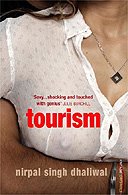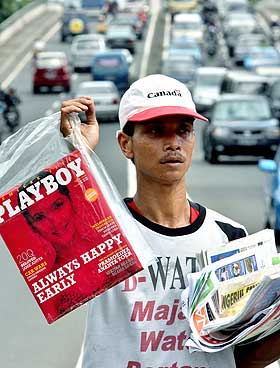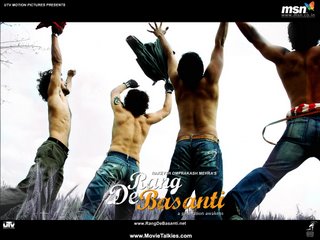
Looks like, yes, if you read this
Observer article. It says that the novel has lost its way!!
"This obsession with literary fashion comes at a price. Consider the sad story of
Londonstani, a first novel by a talented young Asian writer named Gautam Malkani. Hype aside, this spirited coming-of-age story, narrated by Jas, a Hounslow schoolboy, in a mish-mash of patois, rap, text messaging and west London street-talk, is a promising debut. If it had been published, as its author once intended, as a teen novel, it might have found a secure place as a contemporary classroom cult.
Alas, everything about its short life has been a disaster.
Once Fourth Estate, hungry to cash in on the White Teeth and Brick Lane market, had paid an advance in excess of of £300,000, the die was cast. Thereafter, Londonstani had to be 'the literary novel of the year'. Like a Fiat Uno entered for Formula 1, after a squeal of brakes and a loud bang, Londonstani was reduced to a stain of grease, and some scraps of rubber and tin, on the race track of the 2006 spring publishing season. In Borders or Waterstone's, Londonstani is already being airbrushed from history. The celebrity culture of which contemporary fiction has become an uneasy part has no use for failure, or the garret.
From almost every other point of view, and certainly for the consumer, this can occasionally seem like a golden age for books, in which it is impossible to overestimate the impact of the IT revolution. Certainly, the microchip and the internet have transformed booksellers, rejuvenated publishers, galvanised readers and given unpublished writers the kind of audience they had hitherto only dreamed of. Moreover, that truly modern phenomonenon, the blog, has enfranchised a new group of wannabes, creating the sensations of authorship (with none of the pain). Now almost everyone is a published writer. Literary life has become, perhaps for the first time, global, democratic and uninhibited. The bookshops are better equipped and the books they sell are better printed, better designed and better marketed than ever before. There's a huge audience, and apparently no shortage of money. It's an almost perfect environment for a new writer of talent.
But here, finally, is the irony. The greatest IT revolution since Gutenberg, a voracious marketplace, and the transformation of the novel's ambitions, has created a perfect cultural climate for someone 'to do the whole marvellous scene in one gigantic daring bold stroke' - and what do we find ? Despite an impressive showing by Booker in 2004 and 2005, elsewhere in the literary marketplace Fiction, the New Self-Expression, has become a cocky, well-paid and slick appendix to Hello! This is Lit. Lite, offering a short route to a quick buck, a blast of instant celebrity and a text devoid of consequence or meaning.
Aptly, one of this season's hottest literary properties is a novel called Tourism, a case study in such packaging. When its author, Nirpal Singh Dhaliwal, published a savage review of Londonstani, perhaps only a Swift or a Shaw could do justice to the spectacle of apprentices wrestling in mud for the keys to the gates of Parnassus. It makes one strangely nostalgic for the bad old days of FR Leavis."
If the novel has really lost its way, I wonder where are all these wannabe novelists headed?








